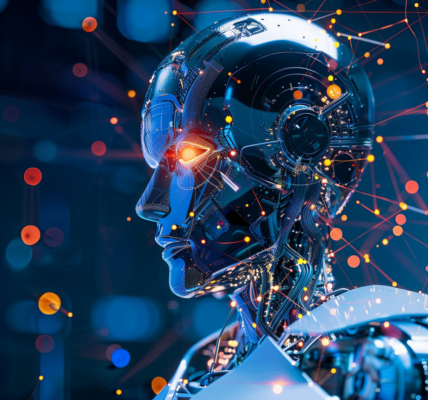Cisco has taken a significant step forward in the realm of customer service by introducing innovative AI agents designed to enhance the customer experience. Unveiled during the recent WebexOne conference held in Fort Lauderdale, Florida, these AI-driven solutions aim to revolutionize the way businesses interact with their customers, potentially eliminating the frustrations often associated with traditional customer service methods.
The tech giant is optimistic that within a few years, artificial intelligence will be capable of managing the majority of customer service calls, thereby reducing the reliance on human representatives. The newly launched conversational AI agent is engineered to address common customer inquiries in a more natural and engaging manner, moving away from the rigid and often frustrating automated phone menus that have become synonymous with customer service.
Frederic Miskawi, VP and AI innovation expert services lead at CGI, a global IT and business consultancy, highlights the advantages of AI agents in dynamic environments such as call centers. According to Miskawi, these agents can respond to real-time changes effectively, which enhances customer service by providing faster response times and improved resolution rates. This is particularly beneficial in situations where human agents may experience fatigue during lengthy shifts.
Unlike traditional automated systems that adhere strictly to pre-defined scripts, Cisco’s AI agents are designed to engage in conversations that feel more organic. They are capable of handling complex tasks such as rebooking flights or replacing credit cards, functions that have typically necessitated human intervention. This shift not only streamlines operations but also increases customer satisfaction by providing quicker solutions.
The recently announced Webex AI Agent is positioned as an AI-powered concierge, ready to tackle customer inquiries through natural dialogue. Set to launch in early 2025, this system will include tools that enable businesses to quickly establish and train AI agents for both voice and digital customer service channels. This flexibility is crucial as companies seek to adapt to the evolving landscape of customer service.
Jeetu Patel, executive vice president and chief product officer at Cisco, emphasized the importance of customer experience in shaping brand perception. He stated, “Customer experience can make or break a brand, and unlike other solutions on the market, the Webex AI Agent solves customer problems instantaneously and will fundamentally transform the experiences we have all reluctantly been using for far too long.” Patel’s remarks underline Cisco’s commitment to creating a solution that not only meets customer needs but also enhances the overall interaction quality.
The evolution of AI technology presents both opportunities and challenges for organizations. As AI continues to advance, businesses are encouraged to remain adaptable in their technological strategies. Miskawi suggests that the key to success lies in developing modular systems that can evolve alongside technological advancements. Instead of relying on a singular platform that may become outdated, companies are increasingly opting for component-based architectures that allow for greater flexibility and scalability.
As the customer service landscape transforms with the integration of AI, the potential for these technologies to reshape how businesses operate is immense. The shift towards AI agents signifies a move towards more efficient, responsive, and personalized customer interactions, setting a new standard in the industry.
In conclusion, Cisco’s introduction of AI agents marks a pivotal moment in the customer service sector. As these technologies become more sophisticated, the prospect of AI handling a significant portion of customer inquiries is not just a possibility but an impending reality. The implications for businesses and consumers alike are profound, heralding a new era of customer service that prioritizes efficiency and user satisfaction.





